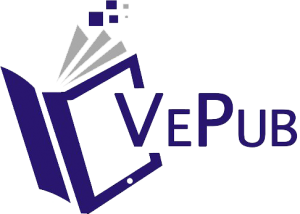Our Mission
Endeavor to become a leading research hub in discovering and spreading the latest research trends in the field of Social Science and Applied Science
About Us
European Academic Research Consortium (EARC) is dedicated to conduct an exciting series of multidisciplinary conferences in Europe and other countries. We are strongly committed to contribute to a systematic scientific evaluation and multidisciplinary discussion of new ideas, trends, and methods in addition to discussing the practical challenges, and the possible solutions which could be applied to resolve these challenges. Our aim is to provide a unique platform to bring together scholars, practitioners, experts, and students from educational institutions, companies, and societies around the world, without cultural barriers, to disseminate knowledge and discuss their most recent high-quality research work with other experts in their research fields. In addition, we also anticipate sustainable and scalable opinions and ideas in generating innovative solutions to shape a sustainable future of research, education, and humanity.
Up Coming Conferences
Research For Sustainable Future – Multidisciplinary Approaches (RSF-23)
Date: May 01-02, 2023
Venue: Barcelona, Greece
More Conferences
Digital Innovation in the Era of Artificial Intelligence (DIAI-23)
Date: September 09-10, 2023
Venue: Amsterdam, Netherlands
More Conferences
Upcoming Conference Divisions
Conference’s program is divided into 7 broad divisions. The divisions represent a wide spectrum of subject areas, each focusing on a set of topics currently relevant to corresponding fields. A detailed overview of questions each division will address can be found below.
Services
Conferences
We are organizing peer-reviewed academic conferences that bring together the world’s leading scholars and opinion leaders in order to inform the public on the deeper understanding of emerging scientific issues and novel research methodologies.
Publications
Selected Papers will get the opportunity to publish in Scopus listed Journals. Contact @ conference respective e.mail.
Consultancy Programs
EARC provides opportunity of academic support services to the students. Under this program, students will get benefit of advising and other consultancy support services by participating in this development project.
Workshops
Specialized workshops for academics, research scholars, and technical communities.
Digital Transformation And ‘New Normal’ Normalization
(DTN-23)
Date: July 02-03, 2023
Venue: Lisbon, Portugal
More Conferences
Specialized Event
EARC is organizing a conference “Digital Transformation and ‘New Normal’ Normalization” which is a specialized event dedicated to exploring the impact of digital technology on businesses and society in the post-pandemic era. Click here to explore further about the event.
Subsribe To Our Newsletter
Stay in touch with us to get latest news and special offers.

















